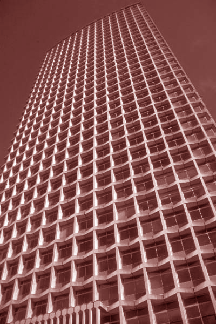

It's All About Youthby Sean Ditty, undergraduate scholar
In loving memory of my dad, Dr. Jeffrey A. Ditty, clinical psychologist and member of Wayne State University Classes of 1969 (B.A in Psychology), 1975 (M.A. in Education), and 1982 (PhD).
When we hear about violence or severe property destruction in our city, we often think about our youth, and in correspondence with that, what kind of drug deal was going down, or what the gangs were up to when this violence and mayhem broke out. More times than not, that's correct. But, when we think about this youth violence, it seems the only reason for it is the kind of television shows they watch, or the music they listen to. Yes, that may be part of the problem, but a majority of the time it's simply boredom that our youth are experiencing. With much free time, kids have the freedom to experiment with things that are not always to their benefit. This is especially true in cities such as Detroit, which is not very youth oriented. The city does not provide places for kids to hang out and be constructive with their time or just to have innocent fun with their friends. The problems with the free time that the youth of Detroit are experiencing have led some people and community organizations to take action to provide programs and centers for these kids. Such a solution helps to keep youth off the streets and involved in an environment that shows then how to be responsible and caring to others, while at the same time assists the city in its beautification efforts.
One program that I speak of in my paper that caters directly to Detroit's youth was started by long-time Detroit resident Jimmy Boggs in 1992, called Detroit Summer. This program has continued and thrived as a result of Grace Lee Boggs, Jimmy's widow. Detroit Summer, as described by Grace Lee Boggs in her book Living for Change, is a program designed around the concept of being a multicultural, intergenerational youth program and movement to rebuild, redefine, and re-spirit Detroit from the ground up (Boggs 232) .
The unique Detroit Summer program was devised and named after a past civil rights movement, Mississippi Freedom Summer, which brought many young people from the North in 1964 to help with the Voter Registration Drive. The program takes about sixty young people from in and around Detroit and offers them the opportunity to work with community elders on projects such as community gardens and public murals. In addition, meetings are also held, at which youth can ask questions and act out dialogues to enable them to form a bond between each other.
At the ceremony that opens Detroit Summer, the volunteers of the program are asked many questions about what they think the future holds for Detroit and its residents. Responding to one question, Grace Lee Boggs made reference to the Black Panthers movement and their famous quote, " If you're not part of the solution, you're a part of the problem " (Boggs, 233). Well, Detroit Summer participants are part of the solution, according to me, and according to Mrs. Boggs.
Perhaps Detroit Summer is a movement that will expand and flourish in Detroit, and as Mrs. Boggs stated, " Instead of expanding Detroit Summer, we hope that others will be inspired to initiate similar projects ".
Following Mrs. Boggs suggestion of initiating projects similar to Detroit Summer, why don't we as a community start new programs for Detroit's youth, to open the youths minds for the city, so they are able to create a more positive personal destiny? More adults could provide their time to be mentors, and provide a stable base of compassion and knowledge for the youth that don't have such an opportunity. In effect, I am proposing something similar to a Big Brother or Big Sister program which helps the youth stay grounded and make good decisions to better themselves and the city environment. Further, we could initiate youth programs involving more religious institutions that will provide activities such as creating meals for the homeless and letting the youth serve them and interact with them, or making cards and putting on shows for elders at retirement homes. Since a lot of kids are interested in sports, intramural teams such as soccer, baseball, basketball, etc., could be formed to develop interaction with other Detroit neighborhoods and to unite the exceptionally diverse population. Such structured athletic activity would help provide an outlet for aggression and allow it to be transferred into healthy competition.
The above described activities would help the youth appreciate what they have, and help others to appreciate them. The joy they will see in the homeless and elders faces will be gratifying and would encourage them to understand how important they are to the community. Moreover, sports would provide an opportunity to learn how to maintain a healthy lifestyle and would also create bonds and friendships that could last into adulthood.
In conclusion, the reason I talk about the Detroit Summer program and my proposed ideas for the future is because of the unusual way it will keep Detroit's youth occupied, resourceful, and outgoing, while at the same time cleaning and rebuilding the city. This is important, because in order for a city and its residents to live happily, the residents must love and commit themselves to the place in which they live. Hopefully, the effect my proposed ideas would have on city youth will be a decreased desire to get involved in violence or reckless behavior, as well as a city that will be clean and friendly to live in.
WORK CITED
Boggs, Grace Lee. Living for Change. Minneapolis, London: University of Minnesota Press, 1998.